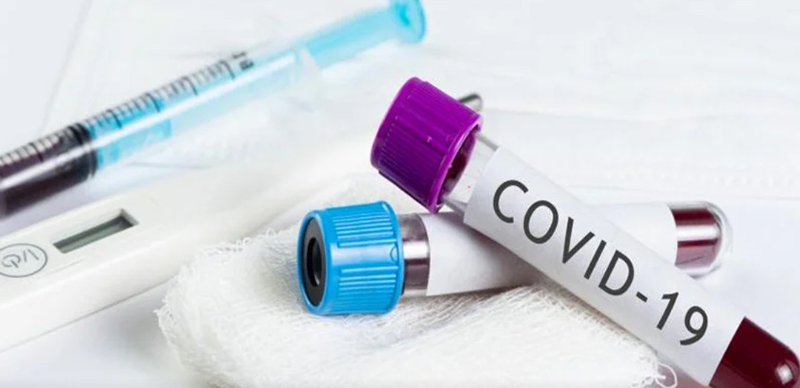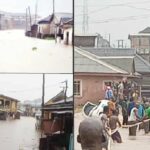
EVEN with the best efforts of the global community, the deadly coronavirus pandemic is still on the loose. Around the world, governments are contending with the health challenges and battling to restore their economies to pre-pandemic levels. In Nigeria, a lull has given way to a spike in new infections and the Nigeria Centre for Disease Control has sounded the alert. Nigerians should brace up and act responsibly, as danger looms with NCDC figures showing infections rising while the rate of vaccination has declined dangerously.
While available data show a 390.4 per cent increase in testing, which has led to an increase in reported positive cases, vaccination has remained below 30 per cent as only 22.3 per cent of the total eligible population has been vaccinated. The NCDC report noted that “in weeks 23 and 24 (2022), the number of samples tested increased to 75,277 from 15,347 reported in weeks 21 and 22. These were reported in the 36 states and FCT.”
The NCDC report added, “In weeks 23 and 24, the number of confirmed cases in absolute numbers increased to 445 from 267 in weeks 21 and 22(May 23 to June 5). In weeks 23 and 24, discharged cases increased to 185 from 47 in weeks 21 and 22.” The rising cases of COVID-19 in the country are alarming and the trend should be stopped.
Observers, including this newspaper, had in May faulted the premature removal of COVID-19 restrictions by the Presidential Steering Committee. It removed the limit on attendance for social gatherings and the curfew on midnight movement it announced two years previously to curb the spread of the virus.
Consequently, there are no more formal restrictions on movement as the nationwide curfew imposed from midnight to 4am has been lifted. The PSC said the social restriction recommendations were revised in line with the three established thematic areas – movement, industry, and labour – as well as community activities.
The government explained that the decision followed the reduced risk of importation of new variants, the availability of vaccines and the increasing number of people vaccinated in Nigeria and globally. It also noted that the use of “face mask to be mandatory for indoor activities but at individual’s discretion during outdoor activities; those aged 60 and above or with co-morbidities such as diabetes and cardiovascular disease.”
There is no doubt that the production, commerce, and transportation services need to be restored. Even without the added battering of the COVID-19 fallout, the Nigerian economy is in trouble. This rules out China-like shut downs of cities and entire regions or a return to the 2020 lockdown in Nigeria. However, like other countries battling the scourge, there is a need to restore basic safety protocols, testing, surveillance and quarantine and treatment services.
There should be containment rules for public gatherings. Experts suggest that the collapse of the COVID-19 protocols at a period when politicians have been engaged in series of political meetings and campaigns may be responsible for the recent hike in the number of cases.
The antics and conspiracy theories promoted by some religious leaders on the COVID-19 vaccine have led to low vaccination. While freedom of thought and expression remain sacrosanct, the laws on false claims, remedies that lead to death or disability should be invoked to deal with charlatans and bigots.
The coronavirus’ resilience is global as resurgent infections and hospitalisations worldwide prove. With the rise of the Omicron sub-variants BA.4 and BA.5 of COVID-19 in the United Kingdom, some experts have called for a reintroduction of mask-wearing in certain settings.
The latest statistics show the number of people infected in the UK has more than doubled since the start of June with around 2.3 million people testing positive. Similarly, the World Health Organisation said that the globally reported cases of COVID-19 have increased by nearly 30 per cent over the past two weeks.
The WHO Director-General, Tedros Ghebreyesus, said that four out of six of the WHO sub-regions saw cases increasing. He blamed this on several factors, including dramatic reduction in testing in many countries.
Nigeria should join those countries stepping up vaccinations. While China has vaccinated 1.26 billion people which is 89.3 per cent of the population, in India, 917 million people or 66.5 per cent of its population, have been fully vaccinated. In the United States, 67.5 per cent of its 329.5 million people have been vaccinated. The NCDC said last month that only 21.23 million had been fully vaccinated and 28.42 million partially vaccinated in Nigeria.
With elections round the corner, the spectre of ‘super-spreader’ events is real. The federal and state governments should aggressively step up the vaccination programme with emphasis on full vaccination. The PSC should urgently reinstate the relaxed protocols. Prevention strategies need to be reinvigorated. Government officials and politicians who disregard COVID-19 protocols should be sanctioned.
Places of worship, markets, schools, and offices should ensure strict compliance with safety protocols. The ministries of information at state and federal levels and their agencies, and local government authorities should mount strong public advocacy.
There should be greater and sustained public sensitisation and education on the basic preventive options and non-pharmaceutical interventions that include wearing of facemasks, regular hand washing and social distancing to minimise physical contact and thus prevent transmission of the virus.
Vaccine racketeering by shady government officials, as well as the issuance of fake COVID-19 test certificates must be stopped, as these despicable acts are hazardous to public health.
Though the economy cannot afford a general lockdown, where necessary however, localised restrictions could be temporarily imposed in areas witnessing high infection. Apart from shutting down some cities, China’s ‘zero COVID strategy’ policy includes about 50 restrictions imposed on the import and export sector. Germany’s municipalities and states adopted new rules emphasising early detection, localised quarantines, and prompt treatment of infected persons.
Political leaders, especially public office holders, should demonstrate responsible leadership by always adhering to all safety protocols. Violators should also be punished according to the law.





